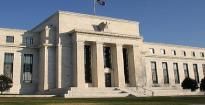Fed Board Only Has One Economist On It
Since Don Kohn retired from the Federal Reserve Board of Governors on Sept. 1, the central bank has been severely understaffed in its executive ranks. (Only four of seven governor slots are currently filled; there are two long-vacant slots besides Kohn's newly vacated seat). President Obama nominated three new governors in April and they were each handily approved by the Senate Banking Committee over the summer, but the Senate has not held confirmation votes, and doesn't appear poised to anytime soon. ("We've got a limited amount of time here, I don't know if there's going to be any appetite to deal with these Fed nominees," said Sen. Christopher Dodd (D-Conn.) recently).
So what does that mean for the functioning of the Fed? It's not good.
Each of the Fed governors has some administrative responsibility over a key area of the central bank. Banking expert Dan Tarullo, for example, oversees bank supervision, and Elizabeth Duke oversees consumer protection matters. Kohn, who was vice chairman until June, had a particularly large portfolio. He was in charge of the research divisions of the Fed -- the economists in monetary affairs, research and statistics, and international divisions who prepare the analysis that Fed leaders use to make policy decisions. And he also oversaw matters involving the regional Fed banks across the country, approving their budgets, major operational decisions, and who would be on their boards of directors. If the vacancies persist, it would cause significant operational strains as the remaining governors are stretched thin, and important administrative aspects of running an institution with almost 2,000 employees in Washington (and another 16,000 around the country) could easily fall by the wayside.
Then there's monetary policy, the Fed's core function. There is now a strange situation in that the institution in charge of guiding the U.S. economy has only one PhD economist among its top officials, Chairman Ben S. Bernanke.
Click here to read more.


